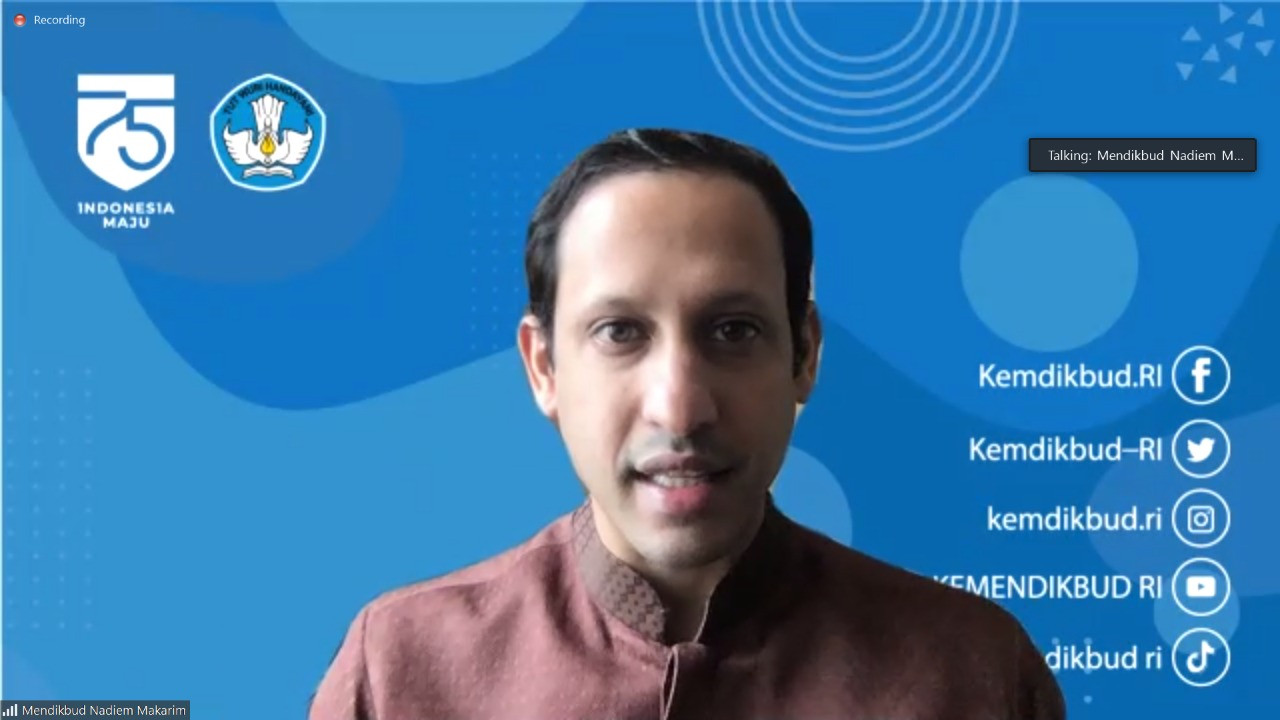Popular Reads
Top Results
Can't find what you're looking for?
View all search resultsPopular Reads
Top Results
Can't find what you're looking for?
View all search resultsEXCLUSIVE: ‘Kids feel lonely’ amid extended remote learning period, Nadiem says
“No one really talks about this as a huge and potentially permanent psychological impact as kids feel lonely for extended periods of time."
Change text size
Gift Premium Articles
to Anyone
E
ducation and Culture Minister Nadiem Makarim has conveyed his concerns regarding the long-term impacts of remote learning on the psychological well-being of Indonesian students, saying that prolonged detachment from their peers and teachers could result in increased anxiety and depression.
Students across the country are at risk of feeling lonely and tense as they are no longer able to experience the personal and interactive learning process they grew accustomed to prior to the COVID-19 pandemic, he said.
“There’s research being done on what happens when kids can’t go to school for an extended period of time, and the impact is significant,” Nadiem said during the Educating the Nation webinar, which was part of The Jakarta Post’s webinar series Jakpost Up Close, on Wednesday.
“The impact is not just on the cognitive aspect of it but also on the emotional and psychological well-being of the students.”
Read also: Pak Nadiem, please send the kids back to school
He warned that extended periods of distance learning could potentially deprive children of their psychological development, rendering them susceptible to antisocial tendencies.
“We’re seeing a lot of tension — psychological tension and pressure — right now on both parents and students, and to be honest, a lot of loneliness,” Nadiem said.
“No one really talks about this as a huge and potentially permanent psychological impact as kids feel lonely for extended periods of time.”
The mitigation of mental health risks inherent to extended isolation should be viewed as an essential aspect of national recovery efforts, he said.
Read also: School reopening risky
The mental well-being of students and socioeconomic discrepancies, he added, were among the main reasons why the government recently decided to allow more schools to reopen as there had yet to be any feasible substitute for in-person learning amid the pandemic.
“We need to mitigate [the effects of the pandemic], but without sacrificing too much of the health risks.”
The government’s decision to allow schools to reopen in moderate-risk areas or yellow zones was met with criticism from health experts and policymakers who are concerned for the physical safety and health of students as the pandemic has not shown any signs of abating anytime soon.
Nadiem defended the policy as a difficult, albeit necessary trade-off to maintaining the spirit of learning in a time of crisis.
“This is something that we need to balance in our considerations and policies while still maintaining as strict of a health protocol as possible.”










